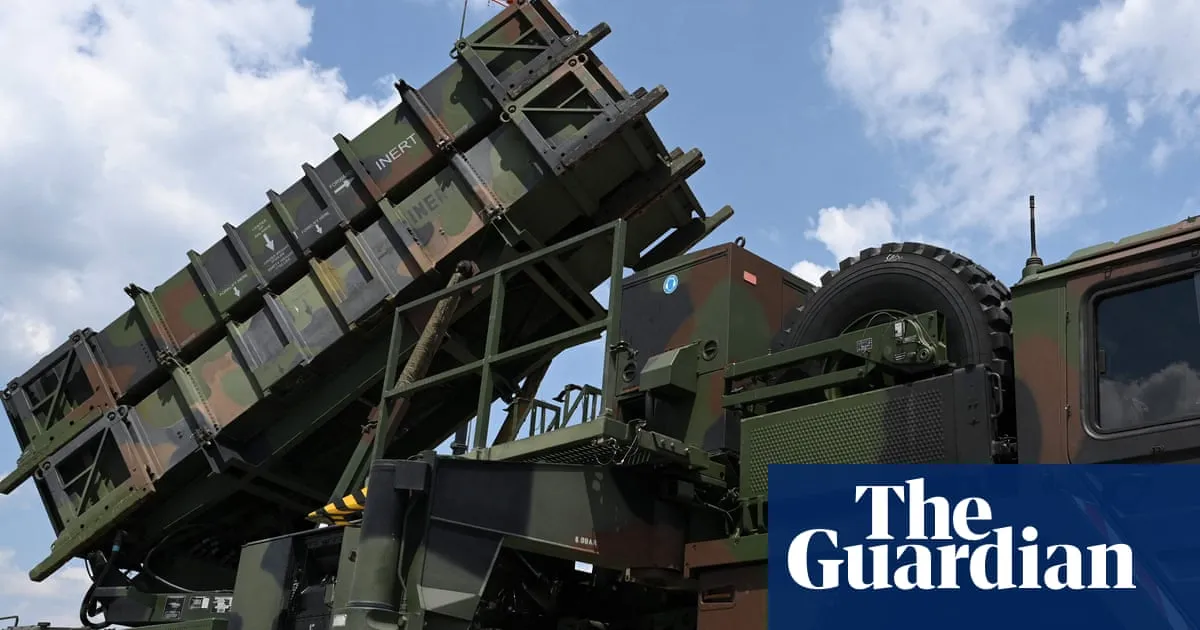
The United States is currently facing a significant shortage of Patriot missile interceptors, holding only about 25% of the necessary stockpiles to fulfill the Pentagon's military objectives. This alarming depletion is largely attributed to the recent drawdown of munitions in the Middle East, which has prompted serious concerns within the Department of Defense. In response, the Trump administration recently froze the transfer of munitions to Ukraine, raising questions about the implications for U.S. military operations.
The dwindling supply of Patriot missiles has led to apprehensions among Pentagon officials that it may jeopardize potential U.S. military operations. Deputy Defense Secretary Stephen Feinberg authorized a halt on munitions transfers while a thorough review of weapon distribution is conducted. This decision underscores the critical importance of maintaining adequate stockpiles for national security.
Former President Donald Trump appeared to partially reverse the decision to halt munitions transfers during a recent dinner with Israeli Prime Minister Benjamin Netanyahu. Trump stated that he would “send some more weapons” to Ukraine, although he did not specify whether this would include Patriot systems. In a phone conversation with Ukrainian President Volodymyr Zelenskyy, Trump clarified that he was not responsible for the freeze on arms shipments and emphasized his direction to review U.S. weapon stockpiles.
The determination to freeze munitions transfers was largely informed by the Pentagon’s global munitions tracker, which establishes the minimum levels of munitions required for military operations. Managed by the Joint Chiefs of Staff and the Pentagon's Defense Security Cooperation Agency, this tracker has shown that stockpiles of several critical munitions have been below necessary levels for years, especially since the Biden administration began sending military aid to Ukraine.
In February, the Trump administration initiated a review of the depleted levels of Patriot missiles and other munitions. The urgency of this review intensified after the U.S. deployed additional interceptors to the Middle East, particularly to support operations against the Houthi campaign and in Israel. The situation escalated further following Trump's decision to bomb Iranian nuclear facilities last month, resulting in the use of nearly 30 Patriot missiles to intercept Iranian ballistic missiles.
Amid the ongoing crisis, Elbridge Colby, the Under Secretary of Defense for Policy, submitted a “recommendation memo” outlining various options to conserve munitions. While earlier reports suggested Colby had paused the transfer of weapons, sources indicate that the actual decision came from Feinberg, with Defense Secretary Pete Hegseth subsequently approving the move.
The timing of the munitions freeze couldn't be more critical for Ukraine, especially as Russia recently launched its largest aerial offensive to date. With limited options to acquire both precision-guided and basic weapons, Ukraine faces significant challenges in defending against escalating Russian attacks. The country is largely unable to purchase weapons directly from defense contractors, as new orders could take years to fulfill and would only be completed after U.S. military orders are prioritized.
Trump's decision to resume some arms transfers to Ukraine follows growing frustration with Russian President Vladimir Putin, whom he criticized for failing to help end the ongoing war. White House and Pentagon representatives confirmed that some munitions transfers would resume under Trump's direction, but specifics regarding the types of weapons being sent remain unclear.
The U.S. has been supplying weapons to Ukraine through two primary channels: drawing down defense department stockpiles and the Ukraine Security Assistance Initiative (USAI), which funds contractors for weapon manufacturing. Both transfer mechanisms face challenges due to the freeze, as the Pentagon prioritizes replenishing its own stockpiles. Concerns are particularly focused on Patriot missiles, of which the U.S. currently produces 600 annually. With Iran reportedly possessing over 1,000 ballistic missiles, the situation continues to evolve, highlighting the critical need for the U.S. to address its military readiness.